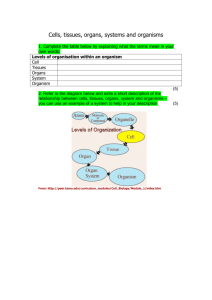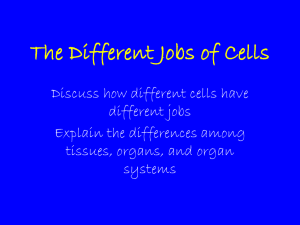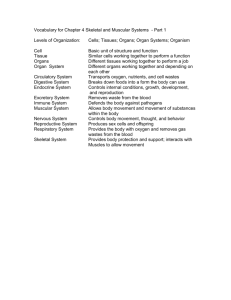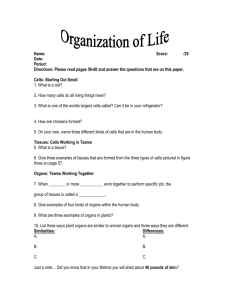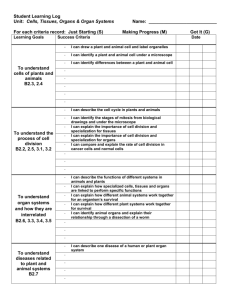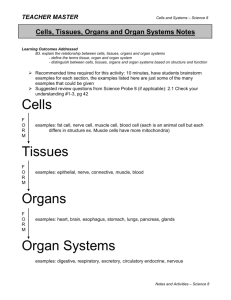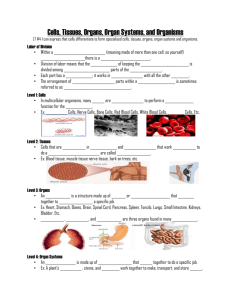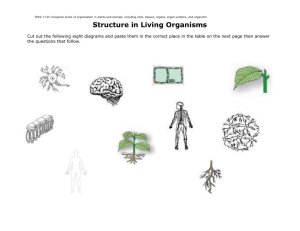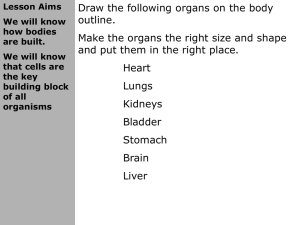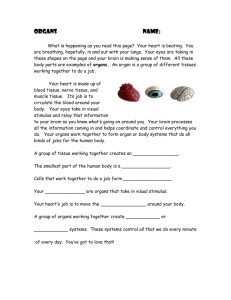Intro to Animal Body Systems
advertisement
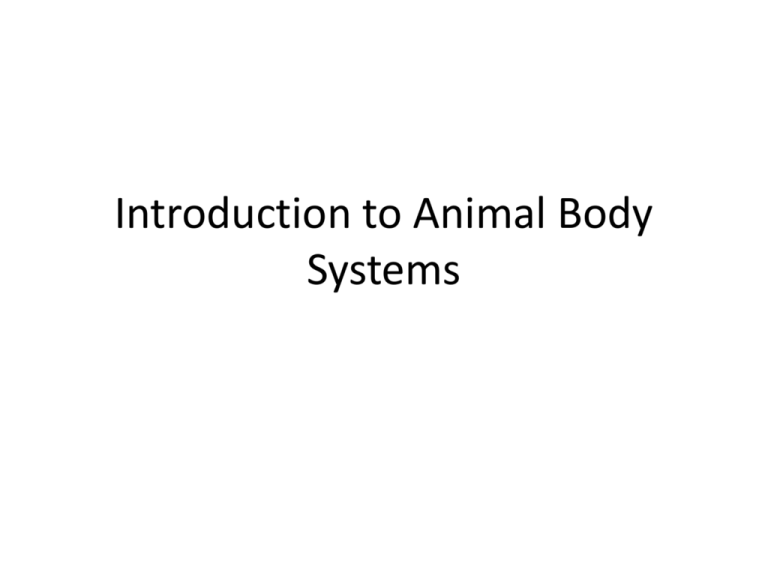
Introduction to Animal Body Systems Essential Questions 1. Describe how animal body systems are organized. 2. Give an example of how form fits function in animal body systems. 3. Describe how and why all organisms are “open systems.” Structural Organization of Animal Bodies • Parts of the body at each level work together to perform a specific function • Levels of Organization: – – – – – Cells Tissues Organs Organ systems Organism Form Fits Function • At each level, the structure of each component fits its specific function • Examples: – The shape of a nerve cell allows it to send signals – The layers of epithelial tissue create a protective barrier – The structure of the heart allows it pump blood Tissues • Specialized cells are organized into different tissues • Each tissue type performs a different function Organs • Organs are structures that perform a specific function in the body • Organs are made up of many different interacting tissues Organ Systems • Organs systems are groups of organs that work together to perform the functions of the body Organ Systems Covered This Year Exchanges with the External Environment • Every organism is an open system – Chemicals & energy are continuously exchanged with the environment – Nutrients & oxygen must enter every cell – Waste & carbon dioxide must exit every cell Exchanges the Human Body • Organ systems in humans that exchange materials with the external environment: – Digestive system – Respiratory system – Urinary system • These are all connected by the circulatory system! Adaptations for Exchange • Complex animals have evolved structures that are folded or branched – Increases the surface area for exchange • Examples: – Lungs – Brain – Blood vessels Essential Questions 1. Describe how animal body systems are organized. 2. Give an example of how form fits function in animal body systems. 3. Describe how and why all organisms are “open systems.”
